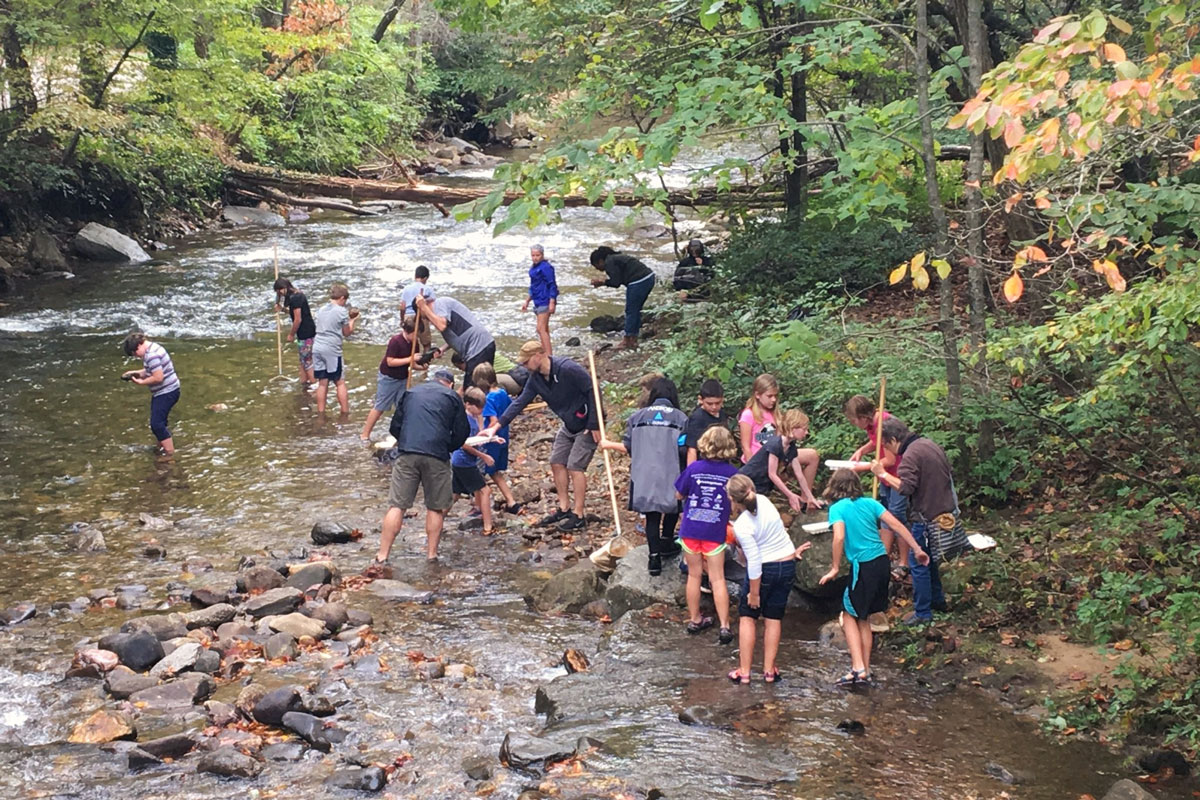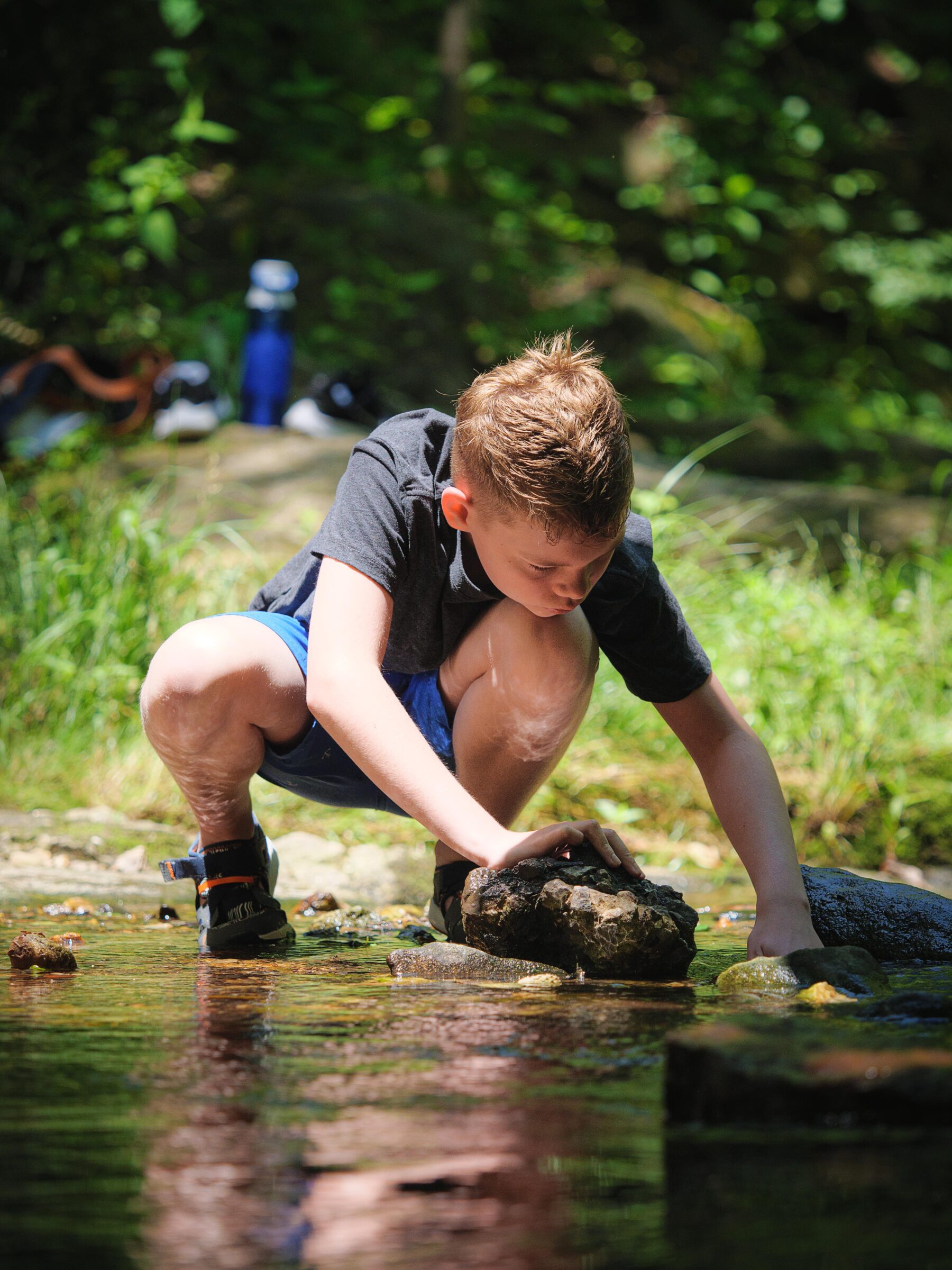
After-school programs are a valuable resource for many children and families, providing a safe and structured environment for children to learn and play once the school day is over.
Outdoor and environmental education in afterschool programs offers numerous benefits for children and adolescents. These programs provide valuable opportunities for learning and personal development that complement traditional classroom education. Here are some of the key reasons we’re working to incorporate outdoor and environmental education into afterschool programs:
- Hands-On Learning: Outdoor and environmental education allows students to engage in hands-on learning experiences that are often difficult to replicate in a classroom setting. They can observe natural phenomena, interact with the environment, and conduct experiments, which enhances their understanding of science and nature.
- Connection to the Natural World: Many children today spend a significant amount of time indoors, often connected to screens. Outdoor education helps them develop a deeper connection to the natural world, a sense of place within their community, and fosters a mentality of stewardship and responsibility for the environment.
- Physical Activity: Outdoor activities encourage physical fitness and a healthy lifestyle. Whether it’s splashing in a stream, running through a field, or climbing a tree, students are able to move their bodies in a fun and exciting way. Afterschool programs that include outdoor education provide opportunities for children to be active, reducing the risk of health problems and promoting overall well-being.
- Teamwork and Social Skills: Many outdoor and environmental activities require teamwork and cooperation. There are opportunities to share observations, collaborate on experiments and data collection, and explore new places together. Participating in group activities outdoors helps children develop social skills, learn how to communicate effectively, and resolve conflicts, all of which are essential life skills.
- Critical Thinking and Problem-Solving: Outdoor and environmental education often involves challenges and problem-solving activities. Students learn to think critically, make decisions, and adapt to changing situations, which are valuable skills for academic and personal success.
- Environmental Awareness: These programs raise awareness about environmental issues and sustainability, teaching students about the importance of protecting the planet. This knowledge can inspire them to become environmentally responsible citizens.
- Increased Engagement: Outdoor activities are typically more engaging for children than traditional classroom lessons. Including outdoor and environmental education can help children stay motivated and excited about learning.
- Cultural and Historical Understanding: Outdoor education can also include learning about the cultural and historical aspects of the environment. For example, students can explore local ecosystems and learn about the indigenous cultures and histories connected to those places.
- Reduced Stress and Improved Mental Health: Spending time in natural settings has been shown to reduce stress and anxiety. The ability to be present in nature can be a very calming experience. Demonstrating for students the ability to use these spaces as a coping mechanism for mental health struggles can better prepare them to engage in an increasingly complex world.
- Life-Long Love for Learning: Engaging in enjoyable and meaningful outdoor activities can instill a love for learning that extends beyond the afterschool program. It can inspire a lifelong interest in science, nature, and the environment.
Recent studies from the NC Center for Afterschool Programs and Dogwood Health Trust have shown a significant need from afterschool providers for more community resources; particularly in science, the outdoors, and social and emotional learning. Simultaneously, the Racial Justice Coalitions ‘Walk the Walk’ report shows a strong desire for out-of-school youth enrichment activities among families of color in the area.

Given these needs, RiverLink has been working to expand our free environmental education opportunities into the afterschool space. We are working to develop deep and authentic relationships with the many incredible organizations providing these services as well as the kids who participate in them. Our goal is to be a supportive resource for our partners and help them achieve their goals of improving the personal and academic success of their students. You can read more about these efforts here.
Incorporating outdoor and environmental education into afterschool programs offers a holistic approach to education, addressing not only academic knowledge but also physical, social, and emotional development. It provides children with a well-rounded educational experience that can have a lasting positive impact on their lives.
